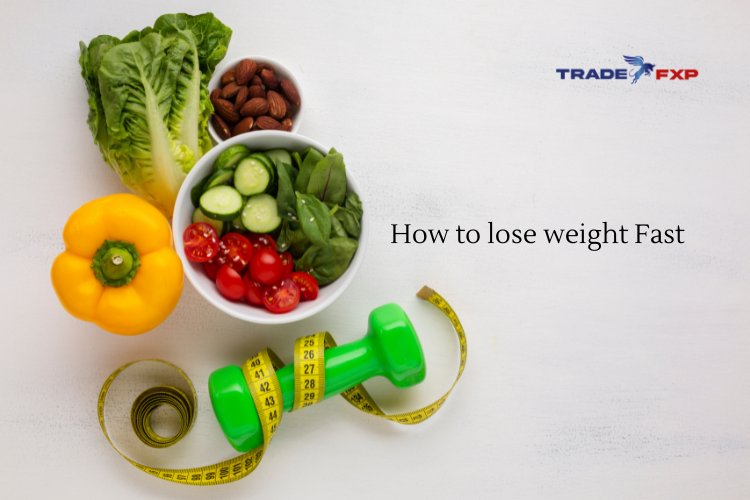An exploration into the dietary side of weight loss
An exploration into the dietary side of weight loss, emphasizing the importance of understanding food science, creating caloric deficits, and adopting different weight loss strategies.

Are you tired of trying numerous weight-loss methods without success? Do you feel overwhelmed by the countless diet plans and conflicting information out there? If so, you're not alone. Many people struggle to find effective ways to shed those extra pounds and achieve their weight-loss goals.
Today, we're going to dive into the world of weight loss and explore the dietary side of this journey. While exercise does play a role in weight loss, it's essential to understand that your diet primarily determines your success in shedding those unwanted pounds. In this article, we'll discuss the importance of understanding food science, creating caloric deficits, and adopting different weight loss strategies. By the end, you'll have a comprehensive understanding of how to effectively lose weight and reach your desired fitness level.
Effective Weight Loss: Diet, Food Choices, and Beyond
Chapter 1: Understanding the Importance of Diet in Weight Loss
Before we dive into the specifics of effective weight loss strategies, let's take a moment to understand why your diet plays such a crucial role in achieving your weight loss goals.
When it comes to weight loss, the key principle is creating a caloric deficit, where the number of calories you burn is greater than the number of calories you consume. This deficit forces your body to tap into its fat stores for energy, resulting in weight loss.
However, not all calories are created equal. Understanding food science can help you make better food choices and optimise your weight-loss efforts. By focusing on nutrient-dense foods that provide essential vitamins, minerals, and macronutrients, you can ensure that your body receives the necessary fuel for optimal functioning while still creating a caloric deficit.
Additionally, understanding the impact of different food groups on your body can help you make informed dietary decisions. For example, refined sugars and carbohydrates can lead to spikes in blood sugar levels and increased fat storage. On the other hand, consuming lean proteins and healthy fats can help stabilise blood sugar levels and promote satiety, reducing cravings and aiding in weight loss.
By becoming more knowledgeable about the science behind your food choices, you'll be better equipped to make decisions that support your weight-loss journey.
Chapter 2: Different Levels of Weight Loss: Making Better Food Choices
Now that we understand the importance of diet in weight loss, let's explore the different levels of weight loss and how you can make better food choices at each stage.
Level 1: At this stage, you can initiate your weight loss journey by cutting down on or eliminating desserts from your diet. This simple step can help reduce your overall calorie intake and create a caloric deficit. By substituting sugary snacks with healthier alternatives like fruits or low-calorie sweets, you'll be on your way to achieving your weight-loss goals.
Level 2: Moving on to Level 2 involves eliminating vegetarian junk food from your diet. Many vegetarian options can be highly processed and loaded with unhealthy ingredients. By focusing on whole, plant-based foods and avoiding processed vegetarian substitutes, you'll fuel your body with the nutrients it needs while still losing weight.
Level 3: At this stage, making better carbohydrate choices at home becomes a priority. Choosing complex carbohydrates like whole grains, legumes, and vegetables instead of refined grains can provide sustained energy and promote weight loss. Additionally, incorporating more fibre-rich foods into your meals can help you feel fuller for longer, reducing the likelihood of overeating.
Chapter 3: Advanced Weight Loss Strategies: Indian Paleo, Ketogenic Diet, and Intermittent Fasting
While the previous levels focused on making gradual improvements to your diet, there are more advanced weight-loss strategies that you can adopt for faster results. Let's explore three popular methods: Indian Paleo, the ketogenic diet, and intermittent fasting.
Level 4: Indian Paleo is a low-carb diet that includes meat, vegetables, and fruits while avoiding grains. By eliminating grains and processed foods, you can further reduce your carbohydrate intake and promote weight loss. Our ancestors, who subsisted on whole, unprocessed foods, served as the model for this diet.
Level 5: The ketogenic diet is a very low-carb, high-fat diet that aims to send your body into a state of ketosis, where it burns fat for energy instead of carbohydrates. By severely restricting your carbohydrate intake and increasing your healthy fat consumption, you can force your body to enter this fat-burning state. However, it's important to note that the ketogenic diet may not be suitable for everyone and should be approached with caution.
Level 6: Intermittent fasting involves restricting your eating window to a specific time period, typically by incorporating periods of fasting into your daily routine. By giving your body extended periods of rest from digesting food, intermittent fasting can promote weight loss and provide other health benefits. However, it's essential to ensure you're still meeting your nutritional needs during the eating period.
Level 7: For even faster weight loss, you can combine intermittent fasting with the ketogenic diet. This approach can be challenging to follow but has the potential to yield significant results. It's important to consult with a healthcare professional or registered dietitian before embarking on this level, as it may not be suitable for everyone.
Level 8: Lastly, it's crucial to mention that extreme measures, such as going without salt or using diuretics to lose water weight, are not recommended for most individuals. These approaches may yield temporary results but are not sustainable or healthy in the long run.
By adopting one of these advanced weight loss strategies, you can accelerate your progress and achieve your weight loss goals more rapidly. However, it's important to find the right approach for your body and consult with a healthcare professional before making any significant dietary changes.
Remember, weight loss is not just about the number on the scale. It's about creating a healthier lifestyle and nourishing your body with the nutrients it needs to thrive. Always prioritise your overall well-being and consult with professionals to determine the best approach for your individual needs.
As you embark on your weight-loss journey, consider documenting your progress on social media platforms like Instagram. Sharing your experiences with others can provide accountability and support, making your journey feel less daunting. Additionally, seek out reputable resources, such as weight loss science playlists and educational channels, to further enhance your knowledge and stay motivated.
Effective weight loss requires a comprehensive approach that prioritises nutrition and dietary choices. By understanding the importance of food science, creating caloric deficits, and implementing different weight loss strategies, you can set yourself up for success. Remember, patience and consistency are key, and always listen to your body's needs throughout the process. Here's to a healthier and happier you!
Meanwhile…
You can just join our account management program and relax. We will make at least 1% profit for you on your account – Check out how by clicking on the link below.
Have fun trading!
Have a great journey, and may you catch some big waves on your way to prosperity!
To see this for real, click here.
https://www.myfxbook.com/members/SankarGanesan/tradefxp-trend-antitrend-day-trading/10404725
To read why you should be with us, click here
To open an account, click here.
To see our regulation certificate: click here.
To see our news with the IFMRRC: click here.
For claims, click here.
For the main site: click here.
For blogs and articles: click here.
Main Website: www.tradefxp.com



 admin
admin 










